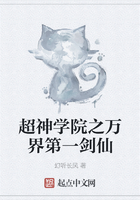A similar movement is going on before our own eyes. Modern bourgeois society with its relations of production, of exchange and of property, a society that has conjured up such gigantic means of production and of exchange, is like the sorcerer, who is no longer able to control the powers of the nether world whom he has called up by his spells. For many a decade past the history of industry and commerce is but the history of the revolt of modern productive forces against modern conditions of production, against the property relations that are the conditions for the existence of the bourgeoisie and of its rule. It is enough to mention the commercial crises that by their periodical return put on its trial, each time more threateningly, the existence of the entire bourgeois society. In these crises a great part not only of the existing products, but also of the previously created productive forces, are periodically destroyed. In these crises there breaks out an epidemic that, in all earlier epochs, would have seemed an absurdity -- the epidemic of over-production.
Society suddenly finds itself put back into a state of momentary barbarism; it appears as if a famine, a universal war of devastation had cut off the supply of every means of subsistence; industry and commerce seem to be destroyed; and why? Because there is too much civilisation, too much means of subsistence, too much industry, too much commerce. The productive forces at the disposal of society no longer tend to further the development of the conditions of bourgeois property; on the contrary, they have become too powerful for these conditions, by which they are fettered, and so soon as they overcome these fetters, they bring disorder into the whole of bourgeois society, endanger the existence of bourgeois property. The conditions of bourgeois society are too narrow to comprise the wealth created by them.
And how does the bourgeoisie get over these crises? On the one hand inforced destruction of a mass of productive forces; on the other, by the conquest of new markets, and by the more thorough exploitation of the old ones. That is to say, by paving the way for more extensive and more destructive crises, and by diminishing the means whereby crises are prevented.
The weapons with which the bourgeoisie felled feudalism to the ground are now turned against the bourgeoisie itself.
But not only has the bourgeoisie forged the weapons that bring death to itself; it has also called into existence the men who are to wield those weapons -- the modern working class -- the proletarians.
In proportion as the bourgeoisie, i.e., capital, is developed, in the same proportion is the proletariat, the modern working class, developed -- a class of labourers, who live only so long as they find work, and who find work only so long as their labour increases capital. These labourers, who must sell themselves piece-meal, are a commodity, like every other article of commerce, and are consequently exposed to all the vicissitudes of competition, to all the fluctuations of the market.
Owing to the extensive use of machinery and to division of labour, the work of the proletarians has lost all individual character, and consequently, all charm for the workman. He becomes an appendage of the machine, and it is only the most ******, most monotonous, and most easily acquired knack, that is required of him. Hence, the cost of production of a workman is restricted, almost entirely, to the means of subsistence that he requires for his maintenance, and for the propagation of his race. But the price of a commodity, and therefore also of labour, is equal to its cost of production. In proportion therefore, as the repulsiveness of the work increases, the wage decreases. Nay more, in proportion as the use of machinery and division of labour increases, in the same proportion the burden of toil also increases, whether by prolongation of the working hours, by increase of the work exacted in a given time or by increased speed of the machinery, etc.
Modern industry has converted the little workshop of the patriarchal master into the great factory of the industrial capitalist. Masses of labourers, crowded into the factory, are organised like soldiers. As privates of the industrial army they are placed under the command of a perfect hierarchy of officers and sergeants. Not only are they slaves of the bourgeois class, and of the bourgeois State; they are daily and hourly enslaved by the machine, by the over-looker, and, above all, by the individual bourgeois manufacturer himself. The more openly this despotism proclaims gain to be its end and aim, the more petty, the more hateful and the more embittering it is.
The less the skill and exertion of strength implied in manual labour, in other words, the more modern industry becomes developed, the more is the labour of men superseded by that of women.
Differences of age and *** have no longer any distinctive social validity for the working class. All are instruments of labour, more or less expensive to use, according to their age and ***.
No sooner is the exploitation of the labourer by the manufacturer, so far, at an end, that he receives his wages in cash, than he is set upon by the other portions of the bourgeoisie, the landlord, the shopkeeper, the pawnbroker, etc.
The lower strata of the middle class -- the small tradespeople, shopkeepers, retired tradesmen generally, the handicraftsmen and peasants -- all these sink gradually into the proletariat, partly because their diminutive capital does not suffice for the scale on which Modern Industry is carried on, and is swamped in the competition with the large capitalists, partly because their specialized skill is rendered worthless by the new methods of production. Thus the proletariat is recruited from all classes of the population.
The proletariat goes through various stages of development.















